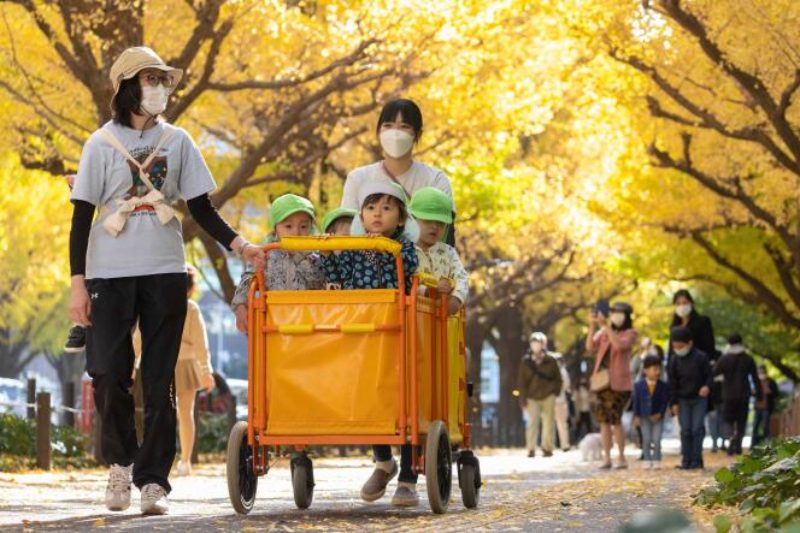Japan Takes Unprecedented Measures Amid Record Low Birth Rate and Deepening Demographic Woes

Preliminary government data released on Tuesday revealed that the number of newborns born in Japan decreased for the eighth consecutive year to a new record low in 2023, highlighting the difficult struggle the nation has in attempting to stop depopulation.
As unmarried births are uncommon in Japan, the number of marriages dropped 5.9% to 489,281 from 758,631 a year earlier. This is the first time in 90 years that the number of marriages has fallen below 500,000, raising the prospect of continued population decrease.
In response to questions on the most recent figures, Japan’s top official stated that the government will be implementing “unprecedented steps” to address the dropping birth rate, including raising wages for younger workers and increasing childcare availability.
Reporters were informed by Chief Cabinet Secretary Yoshimasa Hayashi that “the declining birth rate is in a critical situation.”
“The next six years or so until 2030, when the number of young people will rapidly decline, will be the last chance to reverse the trend.”
Given the possible social and economic ramifications as well as the financial burden on the government, Prime Minister Fumio Kishida has referred to this trend as the “gravest crisis our country faces” and late last year revealed a number of initiatives aimed at helping childbearing households.
The National Institute of Population and Social Security Research has estimated that by 2070, the population of Japan will likely have decreased by approximately 30% to 87 million, with four out of ten individuals being 65 years of age or older.
The government intends to present relevant legislation to the current session of parliament, including a bill to increase child allowances in an effort to counteract the dropping birth rate.